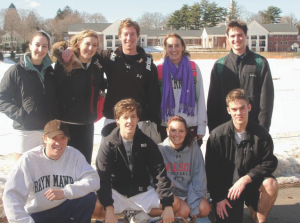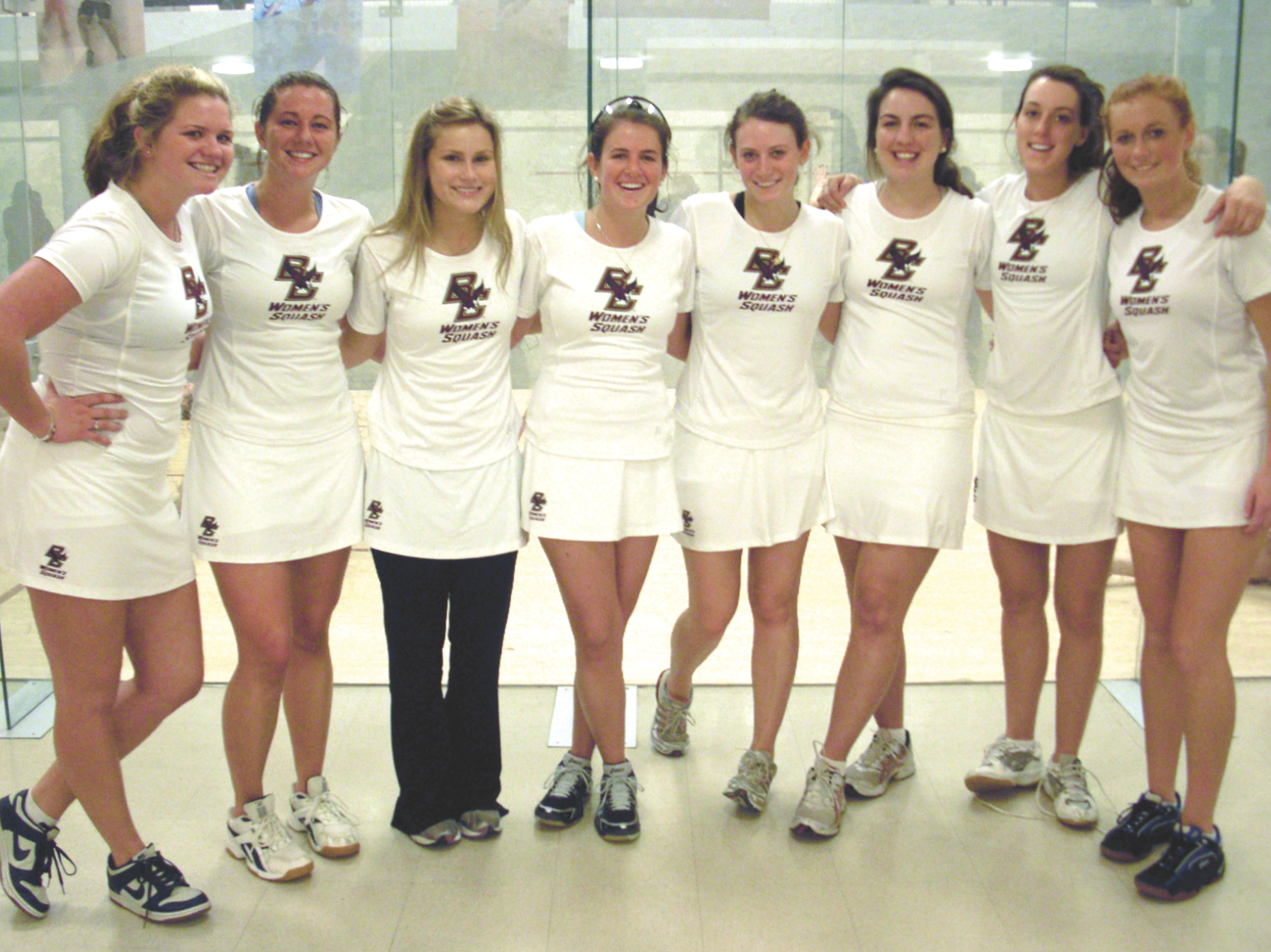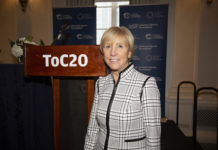By Jennifer Gabler
Continuing with the look at the explosion in the number of college squash programs across the nation that we began in the last issue of Squash Magazine, we introduce you to Bucknell and Boston College.
If you’ll recall, one of the two junior players in Nancy Cushman’s Meadow Mill Athletic Club’s squash programs that left Baltimore to go to a college with no previously established squash program was Griffin Snyder who started Bucknell University’s program. And at Boston College, Helen Whelan has been been working hard to create a new women’s program there.

Bucknell
At Bucknell University, Snyder has established a team of 15, including four girls on a combined squad. The Bucknell squad is in its second year, competed against eight other schools in dual matches and competed in the bracket just above the emerging team division at CSA nationals where they took 10 players. The Bucknell squad is self-coached, and just four of the 15 played in high school; all four women on the squad are new to the game. The biggest issue for the Bucknell team, like many other young programs, is funding. They have a lot of interest from students but lack the funds to travel or hire a coach. And university funding may be five years away as the university requires that amount of time while teams compete as a club sport. Another obstacle is that the Bucknell players are training on four narrow American courts and only play on regulation courts when they travel. Snyder, however, is encouraged that he has had several prospective freshmen contact him about playing squash at Bucknell, and he has been supported by Craig Dawson, the coach at Navy, in developing the Bucknell team.
Boston College
Another emerging team is the Boston College (BC) men’s and women’s squads. BC has had many positive forces helping to shape their fledgling teams. First, being located in Boston where they can get court time on regulation courts and matches against local established programs. Second, the student body includes several experienced prep school players and a large group of interested players on both the men’s and women’s side. Third, parents have been very supportive and raised money for uniforms and travel. The women’s squad competed last year as a five-woman team in the emerging teams division at nationals. Now in their second year (but the first as an official BC team), and having beaten Wellesley in dual match play, the BC women competed in the D/Epps Division of the CSA Championships as a nine-person team—a great accomplishment for them.

Whelan has been leading the BC women’s squad for the past two years. It is a young team with about 15 players, mostly freshmen and sophomores. Some of the beginners have played tennis before and are in good athletic shape. And as is the case with other emerging programs the experienced players have been teaching the beginners. One of the BC beginners started playing one week before nationals but, due to her strong athleticism, was able to get about 7-8 points per game as a raw beginner. As Whelan said, “I taught my roommate to play. When she won her first real match, she was thrilled.”
Just like Bucknell, the college has only two courts on campus, and both are narrow American courts, but the squad has been going to a local club once a week to play on regulation courts. They played in three dual matches (Wellesley, Northeastern and Bates), and have been lucky to have been invited to play in tournaments at local colleges (such as a tournament hosted by Bates and played at the Harvard courts).
The interest in squash at BC just had to be harnessed and Whelan has done just that. Whelan credits the support of parents, the BC club sports director (Monica Capobianco), alumnae and the CSA which encouraged the team’s formation, paid for nationals and helped with travel costs.
CSA Perspective/Shona Kerr
Shona Kerr, coach of the Wesleyan squash teams, is the President of the College Squash Association’s Women’s Committee. Kerr has done an excellent job of encouraging the formation of emerging college teams and forging a strong positive working relationship with U.S. SQUASH. “I would like to see more emerging teams field both men’s and women’s squads rather than combined squads,” said Kerr. “Many programs have the interest and capabilities to do this and they should. For those teams looking to attain varsity status, fielding a women’s team is integral to this process thanks, in part, to Title IX.”
Kerr is in her fifth year as head coach of both men’s and women’s squash at Wesleyan. She came to Wesleyan in 2005-06 after serving as the head squash coach at Wellesley College. Her 2002-03 Wellesley squad posted 15 victories, the most at the College since 1984.
As a player, Kerr was a top junior in England and a four-year member of the Welsh Universities team from 1996-99. In the United States, Kerr was a national under-35 champion, and she won the 5.0 Skill Level Championship in both 2004 and 2005—and she played for the Boston Ladies A team that won the Howe Cup on several occasions.





